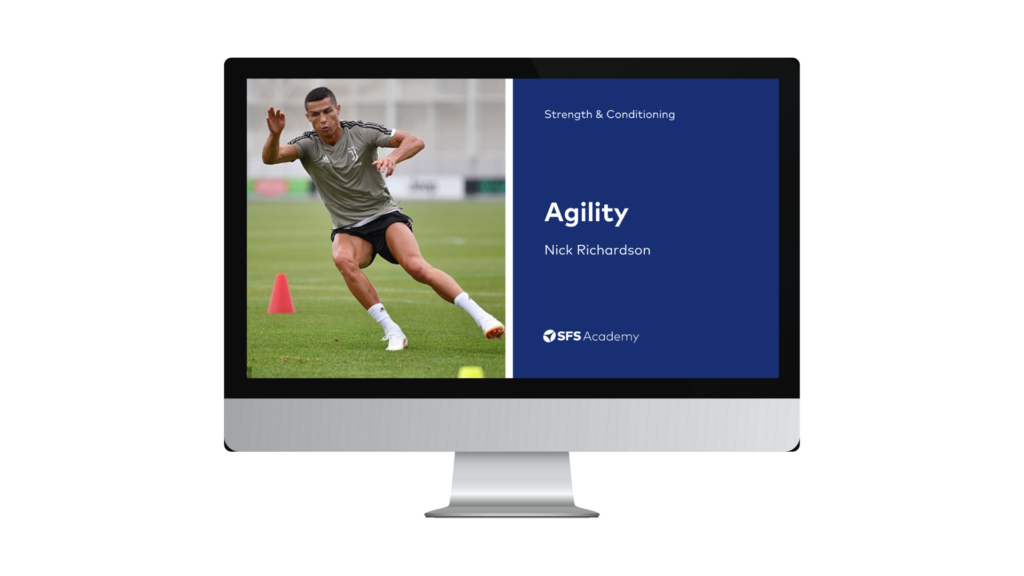This week in the world of sports science, here’s what happened…
- Ipswich Town F.C.’s secret technology software
- Is AG1 a safe and effective supplement?
- Are youth football academy schedules too demanding?
Ipswich Town F.C.’s secret technology software

There was a recent video feature on Sky Sports that highlighted the technology contributing to Ipswich Town F.C.’s promotion to the English Premier Football League. Notably, Ipswich is only the fifth team in history to achieve promotion from League One to the Premier League within two years. The video suggests that a potential secret weapon may underpin their recent success in the Premier League.
This secret weapon is a technology software system called Kitman Labs. While Kitman Labs supports the club in identifying potential transfers and recruiting key personnel, its primary significance lies in player recovery. In the video, Stephen Smith, the CEO of Kitman Labs, explains that the system comprehensively analyses athletes throughout their life cycle, encompassing aspects such as recovery, sleep, nutrition, weekly performance, training activities, and medical profiles.
Andy Rolls, the performance coach at Ipswich, provides further insight into the club’s use of Kitman Labs. Despite the extensive data Kitman Labs stores on players, Rolls emphasises that the interpersonal aspect of “talking to players” is equally vital. Each morning, Rolls inquires about the players’ sleep quality, mood, and any muscle soreness. This information is then stored in the software, allowing Rolls to tailor the players’ schedule based on their readiness. Rolls attributes Ipswich’s success in maintaining player fitness and reducing injuries to these morning discussions with players.
For those interested in exploring the latest sports technology utilised by elite sports clubs and organisations, the video on Kitman Labs from Sky Sports offers valuable insights.
Is AG1 a safe and effective supplement?

The dietary supplement blend known as Athletic Greens 1 (AG1) has gained popularity due to its inclusion of vitamins, minerals, prebiotics, probiotics, and phytonutrients. It is purported to provide digestive support, improve energy and focus, reduce stress, and strengthen the immune system. A recent study investigated the impact of AG1 on the gut microbiome, potential side effects, and its overall safety.
The study revealed that the probiotics present in AG1 can survive the gastrointestinal passage and effectively reach the large intestine, where they can positively influence the gut microbiome. Researchers utilised questionnaires and stool consistency analysis to determine that there were no adverse effects on the digestive system. Additionally, clinical safety markers such as blood work were monitored, concluding that AG1 can be safely consumed.
While the study demonstrated that AG1 can be consumed safely and may have a potentially beneficial impact on the digestive system health, it is important to note a limitation of the study. The study’s duration was only 28 days, which raises questions about the long-term benefits or safety concerns associated with AG1. Nevertheless, the initial research appears promising.
Are youth football academy schedules too demanding?

Recently, Thomas John, the lead academy performance coach at Arsenal F.C., initiated a noteworthy discussion through his LinkedIn post. In the post, John outlines the rigorous demands placed on football academy schoolboy players and provides a sample timetable for a standard week, highlighting prevalent scheduling issues.
John suggests that the length of the day is too long for academy children, and questions whether it’s feasible for them to be productive in both their studies in the morning and rigorous athletic training in the evening. He also points out that meal times are not convenient, leading to negative effects on nutrition. Additionally, he highlights the significant amount of travel time imposed on the children each week. In response to a comment, John talks about observing children who have struggled significantly with academy schedules.
The post generated significant engagement, with numerous influential individuals sharing their viewpoints. Gareth Sandford, a prominent figure in sports science, believes that parents should comprehend the distinction between essential and non-essential activities and prioritise what is essential for their child’s long-term athletic development. Jamie Salter, a researcher in growth and maturation, questions the imposition of such a demanding schedule on young athletes and whether adult athletes would even take on such a demanding schedule. Other comments emphasised that children are not “mini adults” and stressed the importance of “balance” in a child’s development.
In a comment, John aptly summarises his post by outlining that football academies must “integrate learning/practice to best support the development of the child without taking up all their energy and time”. If you work with youth athletes in academies, we highly recommend checking out John’s post and the insightful discussion in the comments section.
From us this week:
>> New course: Energy Balance
>> New podcast: Nutrition Essentials For Female Footballers
>> New infographic: Research Methods In Sport Science
>> New article: Hydrotherapy
Access to a growing library of sports science courses
SFS Academy is an all-access membership to premium sports science education.
With SFS Academy, you’ll learn from some of the best coaches around the world as they teach you how to apply the latest research and practice with your athletes.




